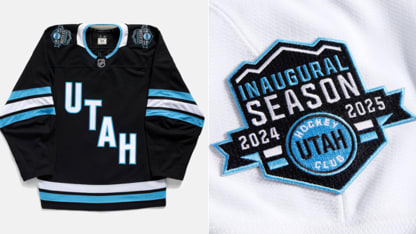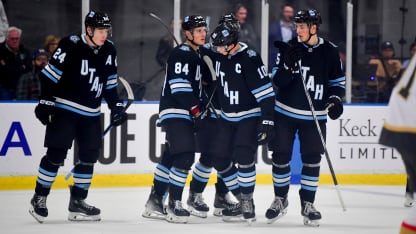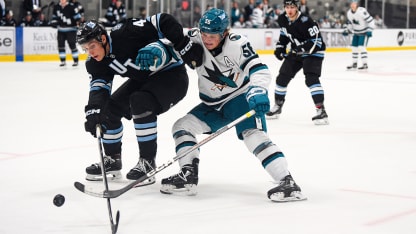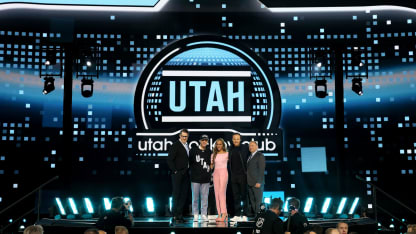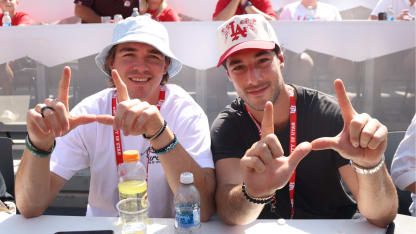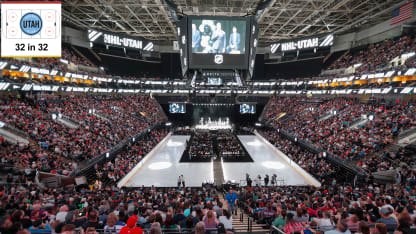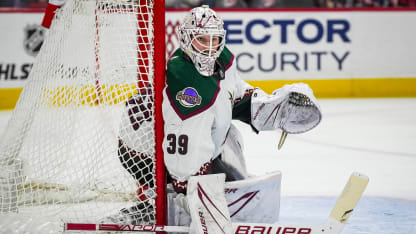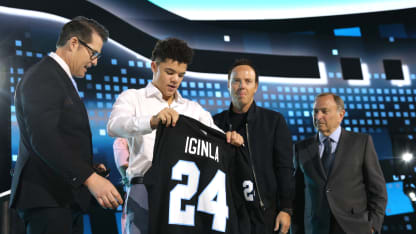The Utah Hockey Club hopes to make its first jersey available to the public as early as November, an impressive accomplishment considering the tight timeline since the NHL established the new franchise April 18.
“We want to make it our No. 1 priority to get our jersey in the hands of fans as quickly as possible so that they can wear it proudly and enjoy it for as much of our inaugural season as possible,” Utah president of hockey operations Chris Armstrong said Friday.
Utah knows there is high demand for the jersey, which has the letters “U-T-A-H” stepping down the front, the colors Rock Black, Salt White and Mountain Blue, and a special meaning. The team’s brand identity likely will evolve next season.
“This is truly a moment in time, and in many respects, [the jersey will be] a collector’s item,” Armstrong said.
The development and production of the jersey has been a complex process, illustrating the challenges Utah has embraced since acquiring the Arizona Coyotes hockey assets and building a new team in a new market on the fly.
How hard is it to create an NHL jersey?
Well, consider that it is usually an 18-month effort that includes design, trademark clearance, procurement of raw materials, and finally production of game and retail versions. Thanks to components like the crest, a hockey jersey is more difficult to manufacture than, say, a football jersey.
Brian Jennings, NHL senior executive vice president and chief branding officer, said the League issues a “change intention letter” to all NHL teams in March. If a team wants to change any part of its uniform, it must inform the League, and it must have its choice of design firm -- Fanatics or an outside company -- approved in April.
A team starting the process this spring would have been doing so for 2025-26, but Utah had to do it for 2024-25, giving the team a year’s less time. The team decided to use a temporary brand identity for 2024-25 while developing a permanent one for 2025-26.
